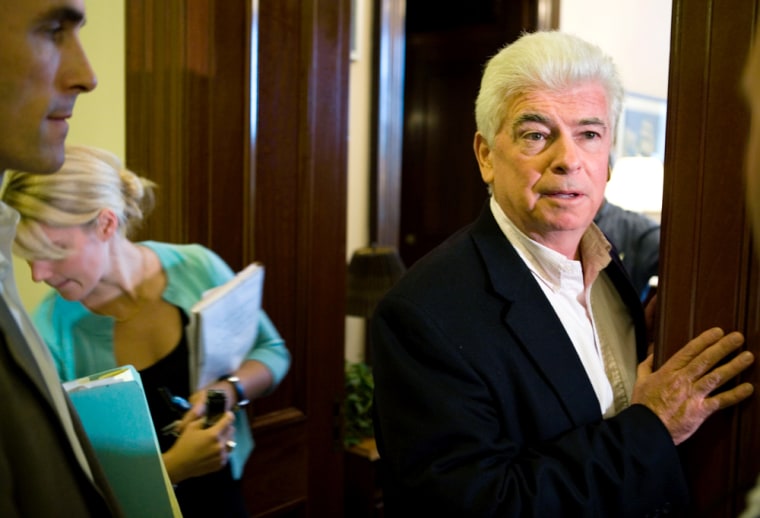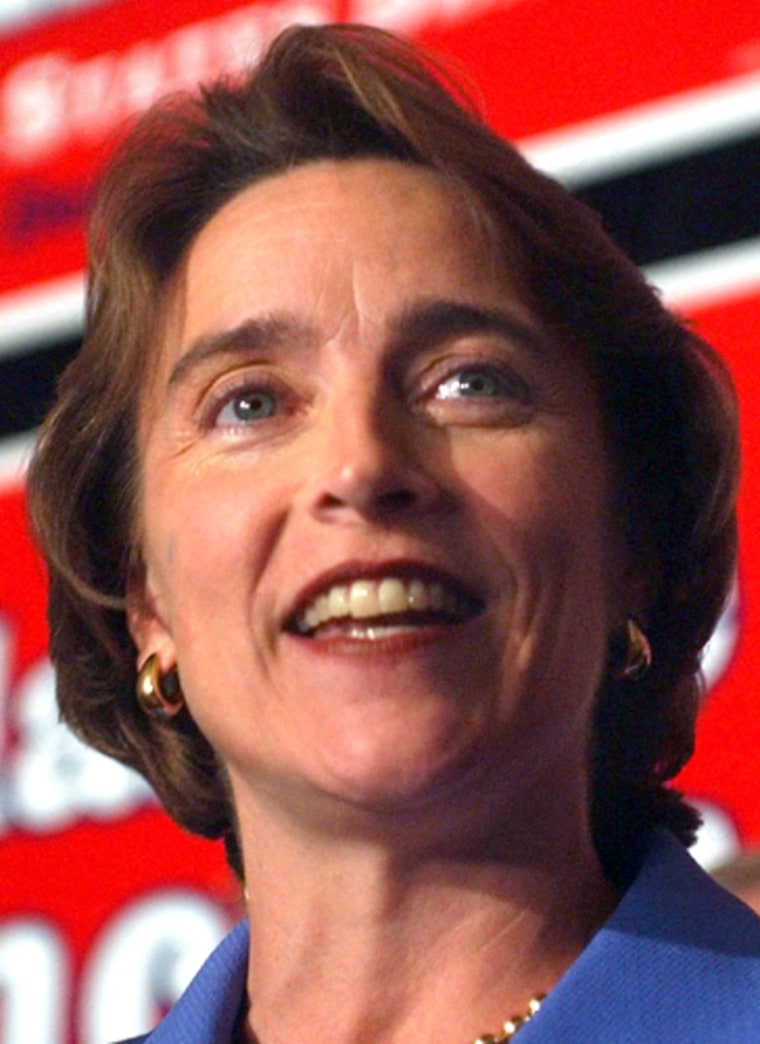Sen. Dick Durbin was just 10 or 11 when he and his cousin Mike sneaked out behind a garage in East St. Louis, Ill., to have a smoke, Durbin's first. He didn't care much for the taste of the cigarette but, unfortunately, Mike did.
Mike died two weeks ago of tobacco-related lung disease.
"There he was, on oxygen, smoking the night before he died," remembered Durbin, D-Ill. "He just could not quit. It is a terrible addiction."
Durbin's father, also a smoker, died at age 53 of lung cancer. "It was devastating to my family," Durbin said during Senate debate last week on legislation to give the Food and Drug Administration powers to regulate tobacco products.
Debate on the bill has offered a glimpse into the personal lives of senators, with revelations of individual struggles with smoking addiction, the deaths of fathers, mothers and other relatives, and a mother's concerns for her soon-to-be teenage twins.
'Everyone in my family smokes'
Senate Majority Leader Harry Reid, D-Nev., confided that "everyone in my family smokes." His father, his mother and his brothers also started as kids and "my dad's miner's consumption was terribly exacerbated by his smoking."

Reid said he, too, was 10 or 11 when he begged a puff from his older brother, who had come home from duty in the Marines. "Suck in as hard as you can," his brother said. "I did that," Reid recalled, "and that was the last cigarette I ever smoked or ever wanted to."
It wasn't that easy for Sen. Chris Dodd, D-Conn., a chief sponsor for the FDA bill. "It is a very addictive product," he said. "So as a former smoker, I know what this is like and how hard it can be for people to break the habit."
The Senate could vote as early as Wednesday on the legislation that for the first time would give the FDA powers to regulate the sale, manufacturing and marketing of tobacco products. The House has passed a similar bill and President Barack Obama supports it.
The Senate cleared the way for passage Tuesday when it defeated, 60-36, an alternative offered by North Carolina's two senators that would have created a new agency, instead of the FDA, to regulate tobacco and would have been more open to development of new, less harmful tobacco products.
Obama's personal reason
Sen. Barbara Boxer, D-Calif., said Obama has his own personal reason for backing the anti-smoking campaign. "He has struggled with tobacco addiction," she said. "He knows how tough it is to say no to cigarettes."
Sen. Frank Lautenberg, D-N.J., recalled that when he was in the Army in World War II he received rations containing some food, a chocolate bar and four cigarettes in a little sleeve. "Everyone got cigarettes free, even if you didn't use them before. The temptation to use them then was great, and it was right down addiction alley."
Lautenberg, who with Durbin led the effort to ban smoking in commercial planes two decades ago, said he quit smoking more than 30 years ago. The catalyst, he said, was when his daughter, then 7 or 8, said she had learned in school that smokers get a black box in their throat, and she didn't want that to happen to him.

Supporters of the legislation repeated estimates that every day 3,500 more young people smoke a cigarette for the first time, a figure that hit home with some younger senators.
"My twin boys will be turning 13 in a couple of weeks," said Sen. Blanche Lincoln, D-Ark. "Let me tell you, the pressure on our young people across this country is very real and very tough."
Sen. Mike Enzi of Wyoming, the top Republican on the health committee, said he was opposing the FDA bill because it didn't go far enough to help people quit smoking or stop kids from picking up the habit.
"My fierce opposition to smoking is a result of smoking killing my dad, and my mom, and my mother-in-law, and secondhand smoking conclusively affecting me," he said in a statement. "This is not political. This is personal."
